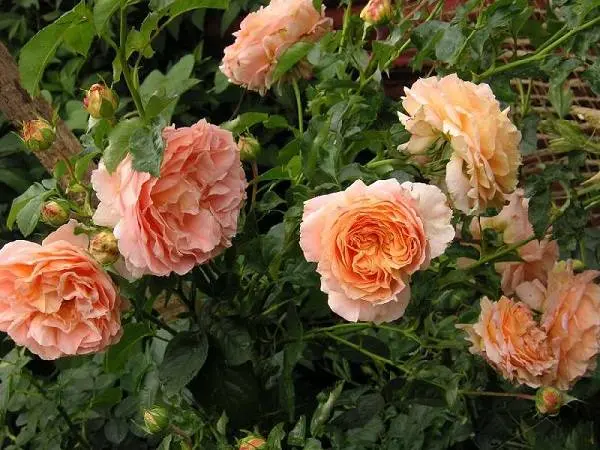The rose, which is deservedly called the “Queen of Flowers”, will probably never lose its title. These flowers are so common that they are grown by almost all flower growers in the country. Every year new varieties are introduced. It is probably impossible to count them all. But some have gained particular popularity. One of these varieties, beloved by many, is the Polka Climbing Rose. Photos and videos with these beautiful flowers are shown below.
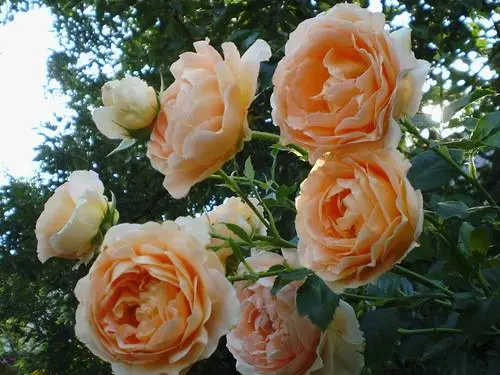
This variety is versatile, can be grown in flower beds, as a hedge and used in vertical gardening. Many grow it right on the balcony or on built arches. Such roses go well with other climbing plants, and stand out very effectively against their background. So, let’s look at all the features of this luxurious flower, and also see how to grow it correctly.
Variety description
This variety is special in that it is not limited to one color. Roses can be dyed coral, apricot or peach. Polka grows up to two or more meters in height.
A fully bloomed flower has undulating petals, as shown in the photo.
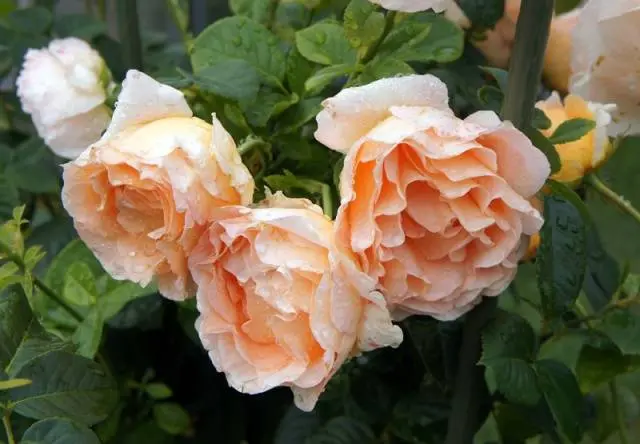
Climbing rose Polka can bloom 2 or even 3 times in a season. In warm climates, flowering is longer. The flowers are large, can reach up to 10 centimeters in diameter. Wavy petals make roses even more lush and double. The aroma of Polka is mild, but this is not surprising for modern varieties of roses. Caring for these flowers is not difficult at all. It takes root well and takes root after transplantation. Flowering is quite long, can last until autumn.
The rose tolerates winter frosts well. Flowering is abundant, each flower has about 40-50 petals. This is a very good indicator for climbing roses. The leaves of this variety are dark green, large and shiny. In the video below, you can clearly see the strong bush of this plant.
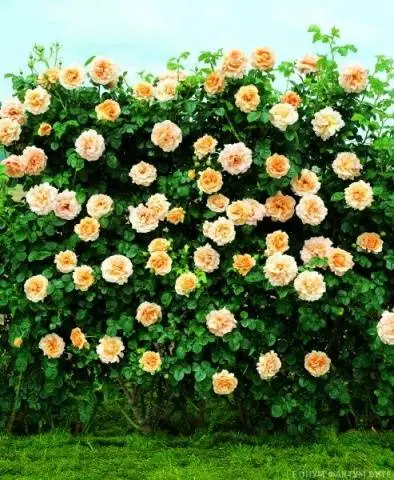
The bush grows very quickly, forming hard erect stems, and lateral thin shoots. There are quite large thorns on the branches. Flowers can form inflorescences of 3-5 pieces each, but single flowers are most common. The waviness of the petals directly depends on the climatic conditions of the region. The warmer the area, the more waves.
Planting a rose
To plant these roses, you will need to dig holes up to 50 cm deep. When planting several bushes at once, keep in mind that they will grow strongly, so 0,5–1 m is also left between them. Organic fertilizers, such as manure or humus, are placed in the hole . Then a large amount of water is poured into the pit. Rose seedlings are carefully placed in the hole, distributing the roots along the bottom.
Otherwise, the plant will spend all its energy on restoring the root system, and not on the growth of the bush.
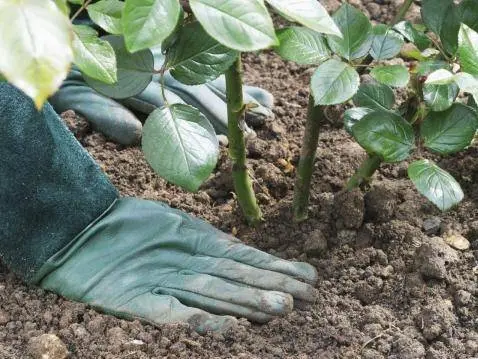
Further, the hole is covered with soil, thoroughly filling all the voids between the roots. You need to bury the bush 10 cm above the root collar. Thanks to this, the plant will be able to put up young roots, and the roots will be protected from frost. After instillation, the earth around the bush is tamped, and then the bush is watered abundantly. Now you should cut the branches of the bush at a height of about 20–25 cm.
Polka can be propagated using cuttings cut in winter or summer. They are placed in water or soil for a while to form roots. It is best to plant a germinated cutting in a pot or a special box. At first, the sprout should be kept under cover, and then it can be transplanted into open ground. For more information on how to grow a rose from a cutting, see the video below.
Rose Polka Care
Growing roses on your site, of course, you need to take care of them. All roses need is:
- regular watering;
- pruning;
- top dressing;
- weeding.
Probably the most important procedure is pruning. It is simply necessary for the normal flowering of the bush, as well as for the formation.
Spring pruning of roses involves getting rid of dried and damaged shoots. In the summer, wilted flowers should be cut off. For the winter, the bush is covered to protect it from frost. You can see how Polka endures winter in the video:
To feed the bushes use organic and mineral fertilizers. Of the mineral dressings, those that contain peat are best suited. Before a cold snap, you should stop fertilizing and watering.
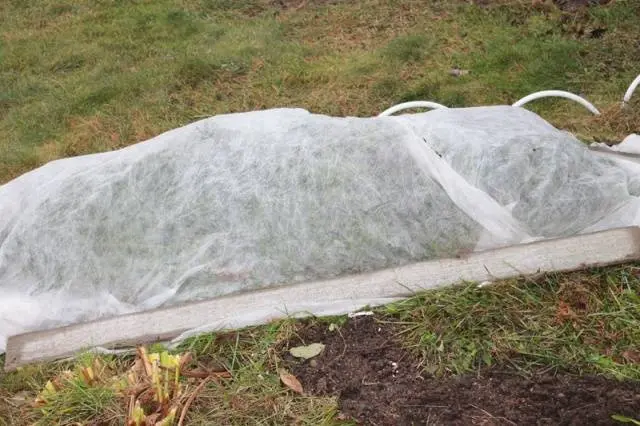
Before placing the rose under cover, you will need to remove it from the support and prune it. After that, the bush is tied and laid directly on the ground, after covering it with dry leaves. From above, the rose can be covered with needles, wooden boards or special material.
Conclusion
Now having roses on your site is not a luxury, but a normal phenomenon. Most gardeners grow these flowers in their garden. The Polka variety is very popular, because it is completely unpretentious, resistant to most diseases, and the appearance of the flowers simply has no equal.
